Cylinder head engine valve cover
Introducing the Cylinder head engine valve cover, a premium plastic component designed to enhance the aesthetic appeal of your vehicle’s engine compartment. This meticulously crafted engine cover serves a dual purpose, providing a polished appearance while concealing intricate engine wiring and components beneath the hood. Engineered for precision and durability, this cover ensures a seamless fit, offering both cosmetic refinement and protection for your engine.
Crafted with high-quality materials, the Cylinder head engine valve cover guarantees optimal performance and longevity. The design seamlessly integrates with your vehicle, showcasing a clean and sophisticated look.
Elevate the visual appeal of your engine bay while safeguarding its vital components with the precision-engineered Cylinder head engine valve cover – a perfect balance of form and function for automotive enthusiasts.
Upgrade your vehicle with the Cylinder head engine valve cover, an emblem of quality and style for every drive.
$1,000.00
CompareCylinder Head Engine Valve Cover
The cylinder head engine valve cover, often referred to simply as the valve cover, is a critical component of an internal combustion engine. It sits atop the cylinder head, sealing the upper part of the engine and protecting the valve train, which includes components like the valves, camshafts, and rocker arms. The valve cover plays a vital role in engine performance, efficiency, and longevity.
Material and Construction
The Cylinder Head Engine valve cover is typically made from materials such as aluminum, steel, or high-strength plastic.
- Aluminum: Known for its lightweight and heat-dissipating properties, aluminum valve covers are commonly used in high-performance and luxury vehicles. They are durable and resistant to thermal expansion and corrosion.
- Steel: Steel valve covers offer robust protection and are often used in heavier-duty applications. They are less prone to cracking under high stress but may require additional coating to prevent rust.
- Plastic: High-strength plastic or composite materials are used for their cost-effectiveness and ease of manufacturing. These materials are often found in modern engines due to their lightweight nature and resistance to heat and chemicals.
The construction of the valve cover involves precision engineering to ensure a proper fit and effective sealing. It typically features an integrated gasket or seal to prevent oil leaks and maintain engine integrity.
Design and Functionality
The Cylinder Head Engine valve cover is designed with several key features:
- Sealing Gasket: The valve cover includes a rubber or silicone gasket that provides a tight seal between the cover and the cylinder head. This gasket prevents oil leaks and keeps contaminants out of the valve train.
- Breather Vents: Many valve covers are equipped with breather vents or PCV (Positive Crankcase Ventilation) valves. These components allow for the release of gases that build up in the engine, helping to reduce pressure and prevent oil contamination.
- Bolt Holes: The valve cover is secured to the cylinder head with bolts or screws, which are usually evenly spaced around the perimeter. These bolts must be properly torqued to ensure a secure seal and prevent leaks.
- Integrated Features: Some valve covers may include integrated features such as oil fill caps, dipstick tubes, or sensors. These components are designed for convenience and functionality, allowing for easy access to engine fluids and monitoring.
Performance and Efficiency
The Cylinder Engine Head valve cover plays a role in the overall performance and efficiency of the engine:
- Oil Containment: By sealing the valve train area, the valve cover ensures that engine oil remains in the correct area and provides lubrication to the moving parts. This is essential for reducing friction and wear, promoting smooth engine operation.
- Contaminant Protection: The valve cover protects the valve train from dust, dirt, and other contaminants that could potentially cause damage or affect performance. Keeping the engine clean and free from debris helps maintain optimal engine function.
- Heat Management: The valve cover also contributes to heat management by insulating the valve train from the extreme temperatures generated within the engine. Proper heat dissipation helps prevent overheating and maintains engine efficiency.
Maintenance and Care
Maintaining the valve cover is important for ensuring the engine’s longevity and performance:
- Gasket Replacement: Over time, the gasket can become brittle or worn out, leading to oil leaks. Regular inspection and timely replacement of the gasket are necessary to prevent leaks and maintain proper engine function.
- Cleaning: The valve cover should be cleaned periodically to remove any buildup of oil sludge or debris. This helps ensure proper ventilation and prevents potential issues with engine performance.
- Inspection: Regular inspection of the valve cover and its associated components (such as bolts and breather vents) is essential to detect any signs of damage or wear. Addressing these issues promptly can prevent more serious engine problems.
Advanced Engineering and Technologies
Modern valve covers may incorporate advanced features and technologies to enhance performance:
- Integrated Sensors: Some valve covers are equipped with sensors for monitoring oil temperature or pressure. These sensors provide valuable data for optimizing engine performance and diagnosing potential issues.
- Thermal Barriers: Advanced valve covers may include thermal barriers or heat shields to further protect the valve train from extreme temperatures, improving overall engine efficiency and longevity.
- Aerodynamic Designs: In high-performance vehicles, valve covers may feature aerodynamic designs that contribute to engine cooling and reduce drag.
Conclusion
The cylinder head engine valve cover is a crucial component that serves multiple functions, including sealing, protection, and performance enhancement. Its design and materials are engineered to ensure durability, efficiency, and reliability. By maintaining the valve cover and addressing any issues promptly, vehicle owners can help ensure optimal engine performance and longevity. Whether in a daily driver or a high-performance vehicle, the valve cover plays a key role in keeping the engine running smoothly and efficiently.
Based on 0 reviews
Be the first to review “Cylinder head engine valve cover” Cancel reply
Related products
-
Engine Cover
Porsche Macan Turbo 3.0L Engine Cover
0 out of 5(0)Introducing the Porsche Macan Turbo 3.0L Engine Cover, a premium plastic component designed to enhance the aesthetic appeal of your vehicle’s engine compartment. This meticulously crafted engine cover serves a dual purpose, providing a polished appearance while concealing intricate engine wiring and components beneath the hood. Engineered for precision and durability, this cover ensures a seamless fit, offering both cosmetic refinement and protection for your engine.
Crafted with high-quality materials, the Porsche Macan Turbo 3.0L engine cover guarantees optimal performance and longevity. The design seamlessly integrates with your vehicle, showcasing a clean, sophisticated look.
Elevate the visual appeal of your engine bay while safeguarding its vital components with the precision-engineered Porsche Macan Turbo 3.0L engine cover a perfect balance of form and function for automotive enthusiasts.
Upgrade your vehicle with the Porsche Macan Turbo 3.0L engine cover, an emblem of quality and style for every drive.
SKU: n/a -
Engine Cover
BMW ActiveE Engine Cover
0 out of 5(0)Introducing the BMW ActiveE Engine Cover, a premium plastic component designed to enhance the aesthetic appeal of your vehicle’s engine compartment. This meticulously crafted engine cover serves a dual purpose, providing a polished appearance while concealing intricate engine wiring and components beneath the hood. Engineered for precision and durability, this cover ensures a seamless fit, offering both cosmetic refinement and protection for your engine.
Crafted with high-quality materials, the BMW ActiveE Engine Cover guarantees optimal performance and longevity. The design seamlessly integrates with your vehicle, showcasing a clean, sophisticated look.
Elevate the visual appeal of your engine bay while safeguarding its vital components with the precision-engineered BMW ActiveE Engine Cover – a perfect balance of form and function for automotive enthusiasts.
Upgrade your vehicle with the BMW ActiveE Engine Cover, an emblem of quality and style for every drive.
SKU: n/a -
Engine Cover
INFINITI EX35 Engine Cover
0 out of 5(0)Introducing the Engine Cover for INFINITI EX 35, expertly designed to seamlessly fit G37, Q50, and Q70 models. Crafted with precision, this engine cover combines durability and style to enhance the performance of your vehicle.
Engineered for a perfect fit, it ensures compatibility with various INFINITI models, including the G37, Q50, and Q70.
Constructed with high-quality materials, our Engine Cover provides optimal protection for your engine components, shielding them from debris and environmental elements.
The sleek design not only adds a touch of sophistication to your vehicle but also contributes to improved aerodynamics.
Experience peace of mind knowing that our Engine Cover is manufactured to meet stringent quality standards, ensuring reliability and longevity.
Upgrade your INFINITI’s under-the-hood aesthetics while safeguarding its engine with this premium cover designed to fit the EX 35, G37, Q50, and Q70 models flawlessly.
SKU: n/a -
Engine Cover
BMW M2 Engine Cover
0 out of 5(0)Introducing the BMW M2 Engine Cover, a premium plastic component designed to enhance the aesthetic appeal of your vehicle’s engine compartment. This meticulously crafted engine cover serves a dual purpose, providing a polished appearance while concealing intricate engine wiring and components beneath the hood. Engineered for precision and durability, this cover ensures a seamless fit, offering both cosmetic refinement and protection for your engine.
Crafted with high-quality materials, the BMW M2 Engine Cover guarantees optimal performance and longevity. The design seamlessly integrates with your vehicle, showcasing a clean, sophisticated look.
Elevate the visual appeal of your engine bay while safeguarding its vital components with the precision-engineered BMW M2 Engine Cover – a perfect balance of form and function for automotive enthusiasts.
Upgrade your vehicle with the BMW M2 Engine Cover, an emblem of quality and style for every drive.
SKU: n/a -
Engine Cover
Kia Amanti Engine Cover
0 out of 5(0)Introducing the Kia Amanti Engine Cover, a premium plastic component designed to enhance the aesthetic appeal of your vehicle’s engine compartment. This meticulously crafted engine cover serves a dual purpose, providing a polished appearance while concealing intricate engine wiring and components beneath the hood. Engineered for precision and durability, this cover ensures a seamless fit, offering both cosmetic refinement and protection for your engine.
Crafted with high-quality materials, the Kia Amanti Engine Covers a clean, sophisticated look.
Elevate the visual appeal of your engine bay while safeguarding its vital components with the precision-engineered Kia Amanti Engine covers a perfect balance of form and function for automotive enthusiasts.
Upgrade your vehicle with the Kia Amanti Engine Cover, an emblem of quality and style for every drive.
SKU: n/a



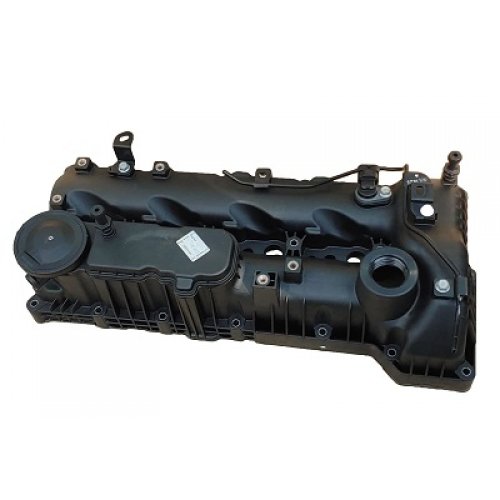
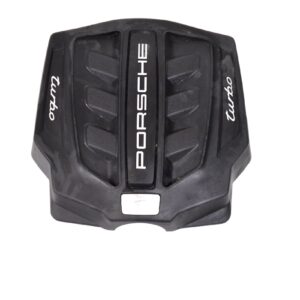
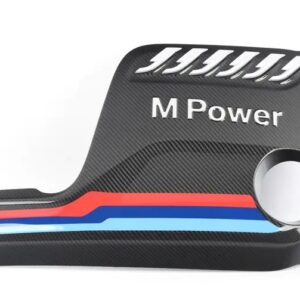
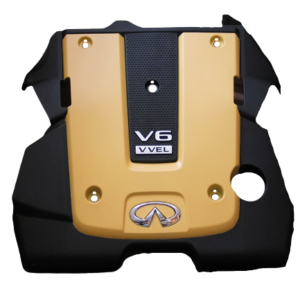
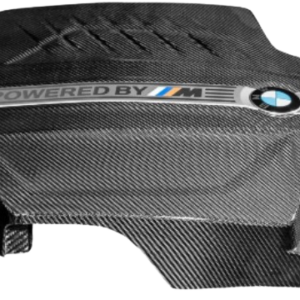
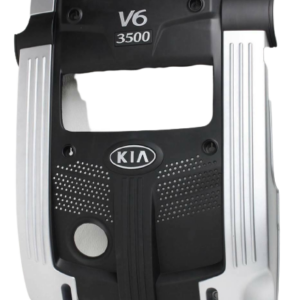
There are no reviews yet.